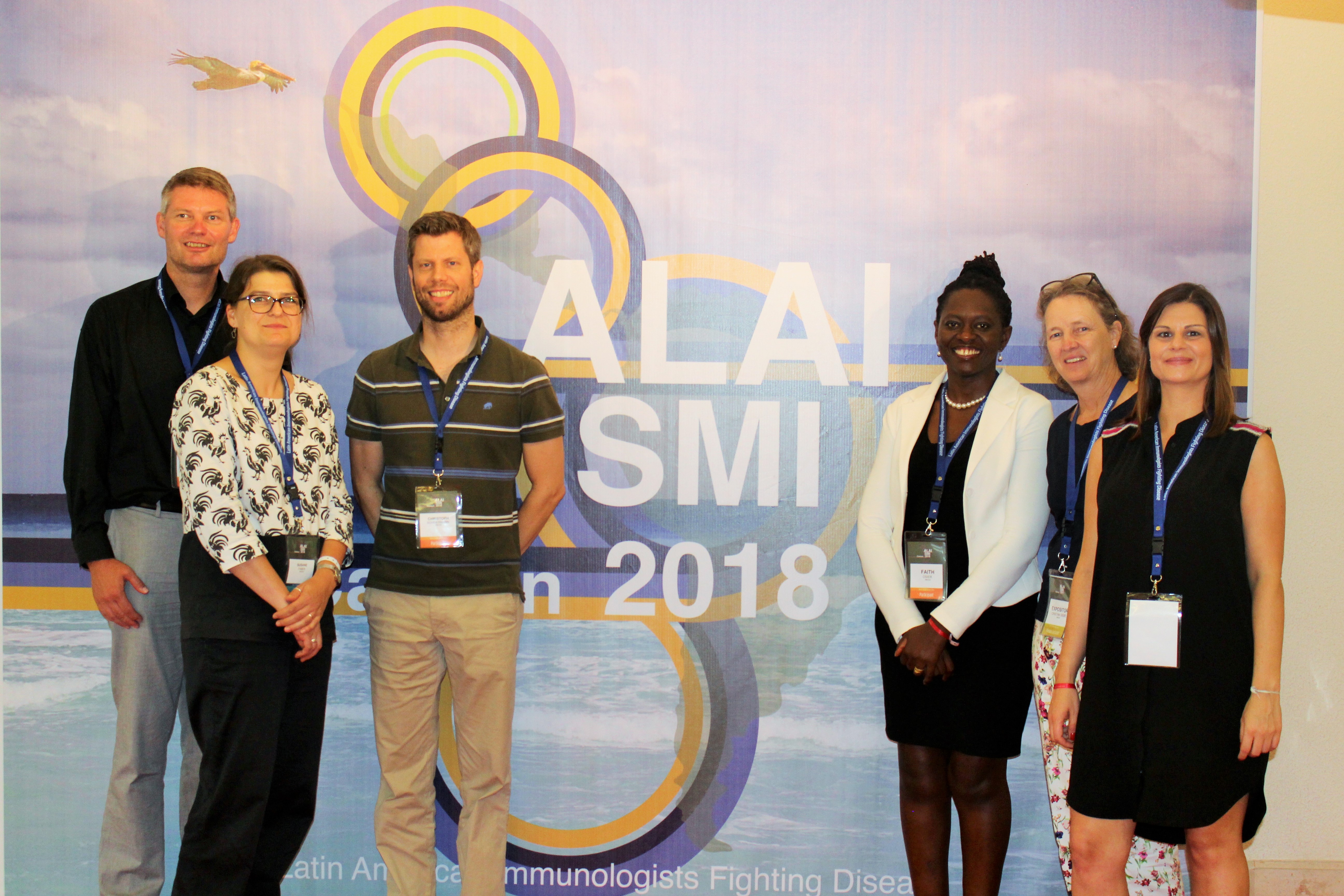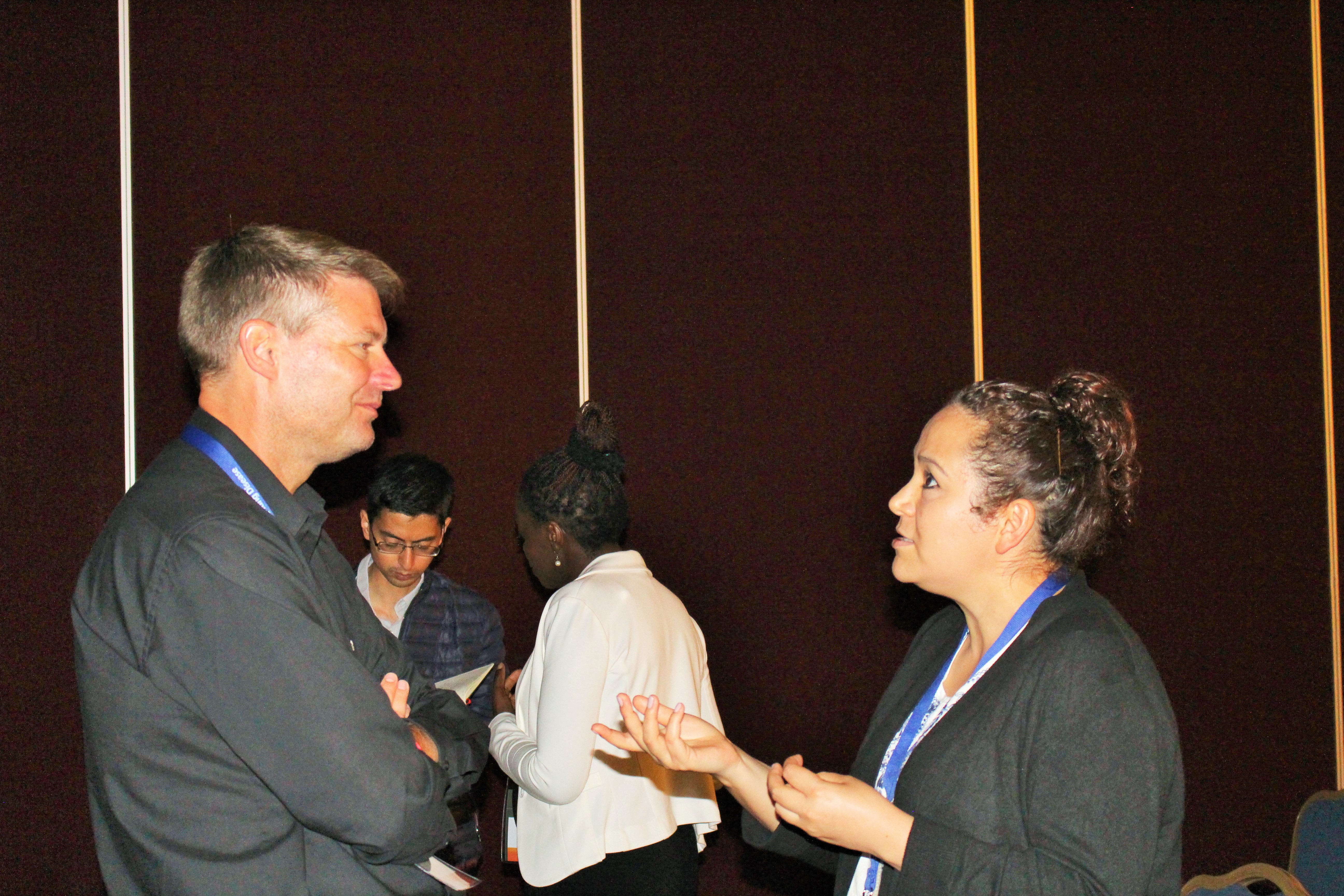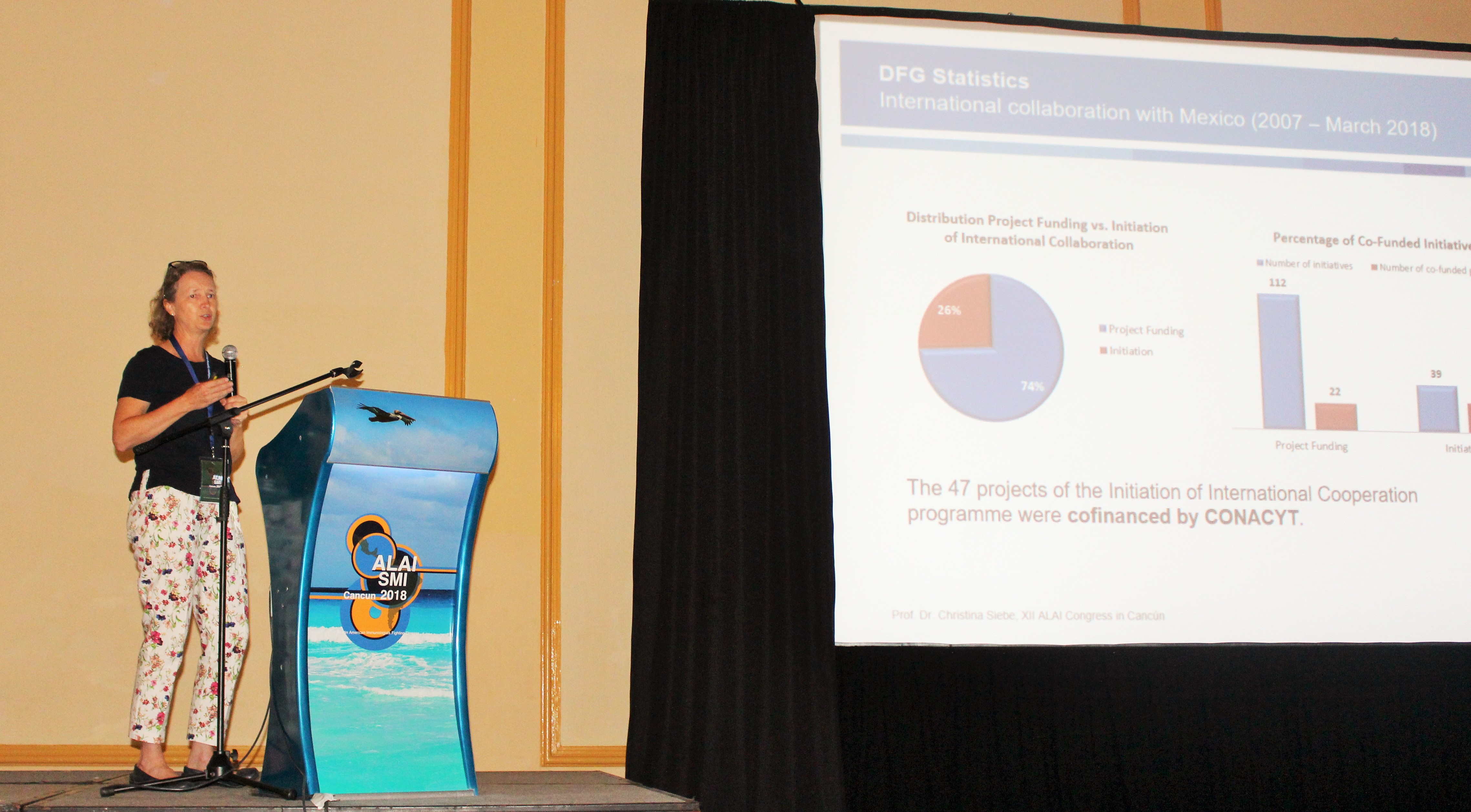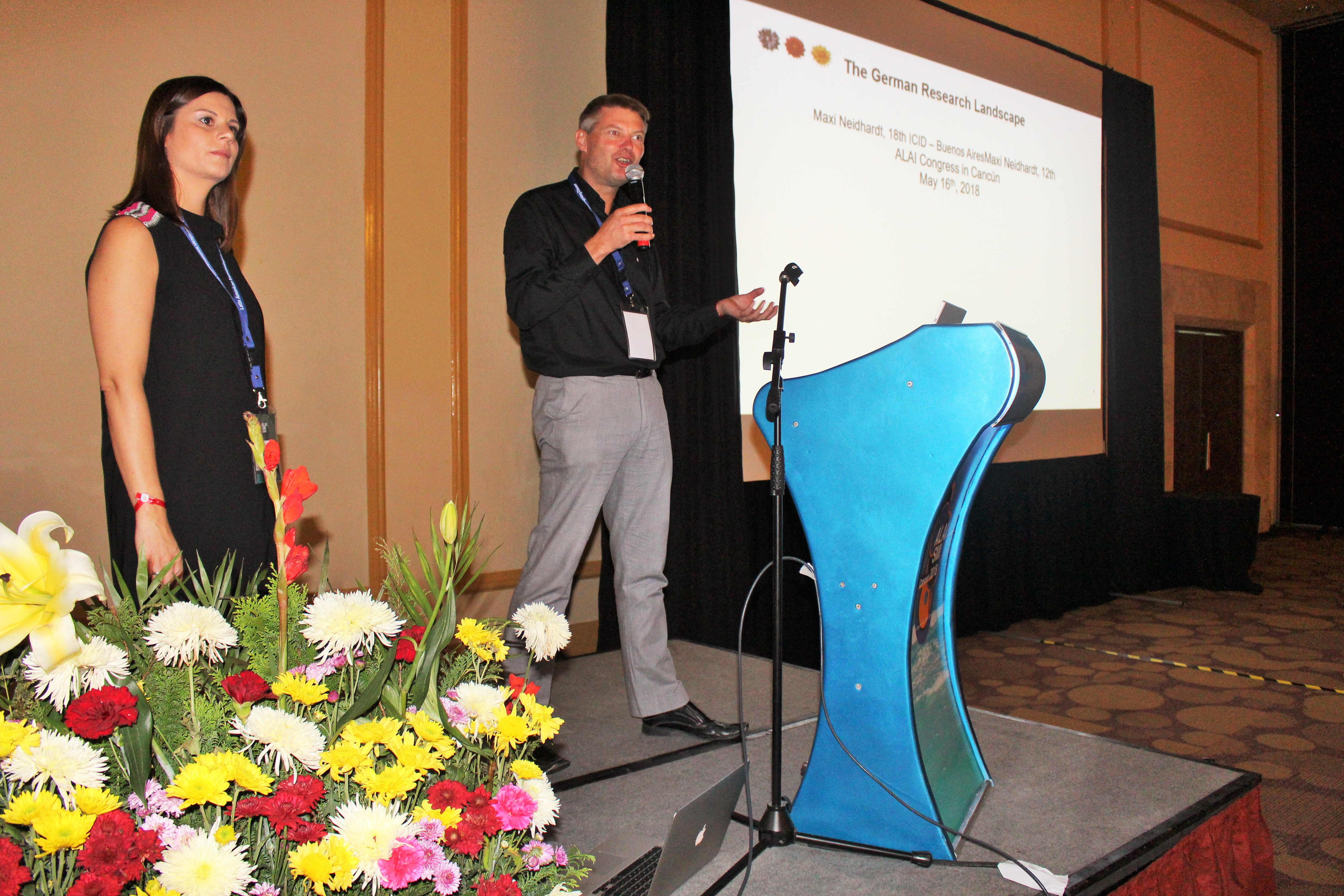Research in Germany in Cancún to Present Germany as Research Location
(28.05.2018) During the second week in May, around 1,000 participants came together in Cancún for the 22nd Latin American Immunology Congress (ALAI). Over the course of a series of lectures and symposia on the current challenges and latest findings in the field of immunology, the international audience also had a chance to learn about research and funding opportunities in Germany. The DFG Office Latin America organised a presentation of Research in Germany, comprising a booth and an information event.
The DFG had been invited to attend by Prof. Dr. Michael Schnoor, a researcher at CINVESTAV, a Mexican institution of excellence. The German researcher left the Max Planck Institute for Molecular Biomedicine in Münster six years ago to pursue his research work at CINVESTAV. In conversation with the DFG, he emphasised the great scientific potential in Mexico reflected, among other aspects, in outstanding projects and publications in immunology, virology and parasitology. “We have excellent infrastructure at CINVESTAV. If you make full use of it, the research conditions are comparable with those in Germany and you can work very effectively,” said Schnoor.
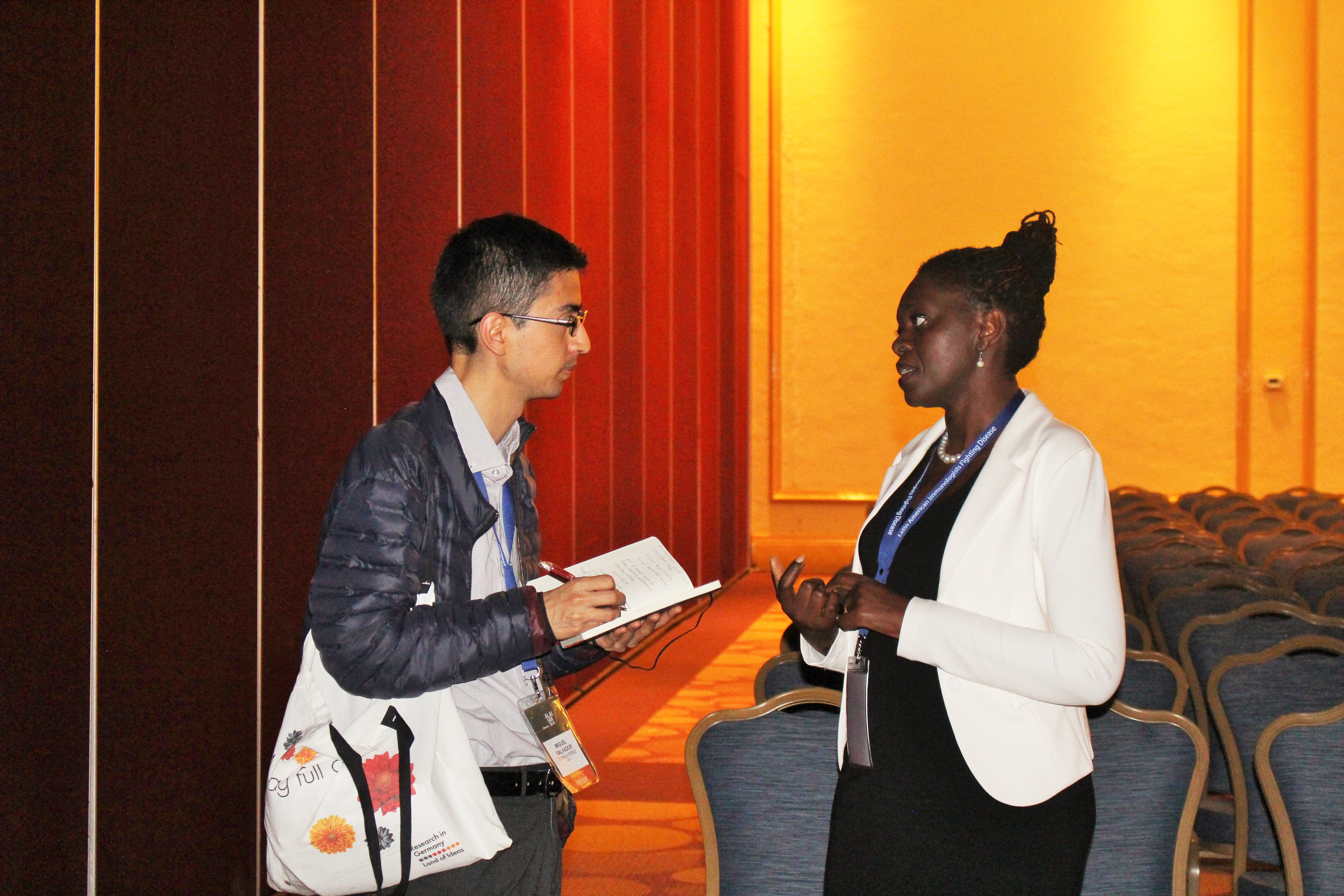
Osier (right) answered individual questions at the end of the event
© DFG
Schnoor also took part in the Research in Germany Lunch Session on 16 May, followed with great interest by around 150 people. Representing the research location of Germany, Prof. Dr. Christoph Scheiermann, a biochemist at the medical faculty of LMU Munich, presented his work and his institute, imparting some useful tips and advice for making contact with researchers in Germany along the way.
The Kenyan winner of the Sofja Kovalevskaja Award, Prof. Dr. Faith Osier, an immunologist at Heidelberg University Hospital, also shared her experience as a researcher in Germany. It was particularly interesting for the audience to hear about the specific features and challenges of the German research system from the perspective of a foreign researcher, as well as her impressions of everyday life in Germany. The presentations were then rounded off by talks by the funding organisations. The DFG was represented by its Liaison Scientist in Mexico, Prof. Dr. Christina Siebe, who spoke about the funding portfolio and the cooperation with Mexican partner organisation CONACYT that has existed since 1991.
Michael Schnoor (CINVESTAV), Susanne Faber (DAAD Mexico), Christoph Scheiermann (LMU Munich), Faith Osier (Heidelberg University Hospital), Christina Siebe (DFG/Universidad Nacional Autónoma de México) and Maxi Neidhardt (DFG)
© DFG
Carolina Martinez Mijares, a Mexican doctor seeking to complete a doctorate abroad, found the Lunch Session to be an excellent source of information. “I had often heard about research opportunities in other countries, but had never received such comprehensive information as I did at this event. Besides presentations by different institutions, there were also explanations of the associated funding opportunities. What I found most interesting were the experiences from the different perspectives of the researchers,” said the Master's graduate in healthcare.
Schnoor had some advice for early career researchers who, like Ms. Martinez Mijares, are seeking to pursue their academic careers in Germany: “Always keep your eyes and ears open and reach out to people. It is very important to take part in congresses such as this one and to present your data to the scientific community - networking is a very important aspect.”
